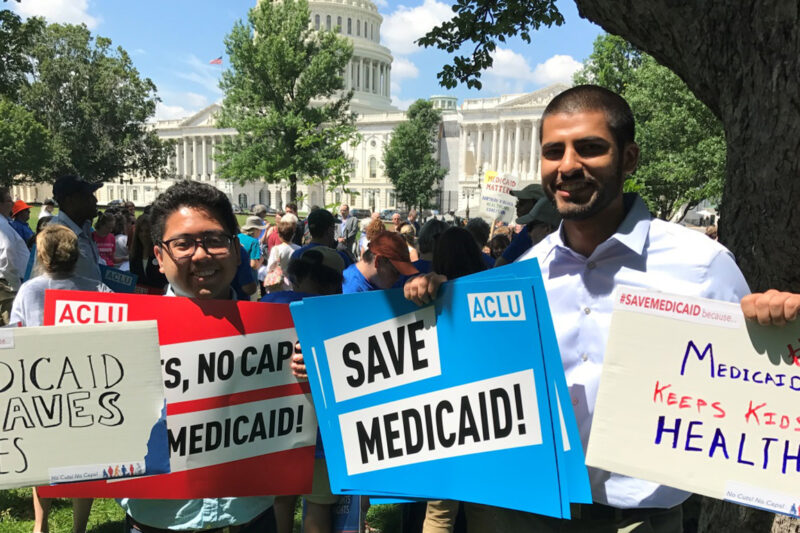
Yesterday, hundreds of men, women, and children rallied on Capitol Hill in Washington, D.C., to tell the Senate to save the lives of people with disabilities by saying no to drastic cuts to Medicaid and no to any proposal that caps Medicaid funding.
We had one clear message: The health care bill that the Senate is now drafting must save Medicaid, not destroy it.
For millions of people with disabilities, Medicaid is a lifeline. Their ability to live free depends on the services and supports that Medicaid provides and allows them to get out of bed, go to work, and live in the community instead of an institution. It is no exaggeration to say that the lives and liberty of people with disabilities depend on a strong Medicaid program.
Medicaid is also the primary source of health care for millions of others. Medicaid matters because access to health care, facilitated by insurance coverage, enables individuals to participate in the economic, social, and civic life of the nation, advancing equal opportunity and personal liberty. It is a critical safety net program that extends dignity to millions.
Women make up the majority of those enrolled in Medicaid. Nearly 40 million women rely on the program for care. This includes millions of women of — 20 percent of all women aged 15-44, with enrolled at higher rates.
that these millions of women have access to critical family planning services, covering 75 percent of publicly funded family planning services. It enables many women to decide when, whether, and how to start families. It also provides maternity care, covering approximately half of all births in the U.S. And when women enrolled in Medicaid give birth, it ensures that their newborns are covered as well.
But all of this is now under threat because Congress has put Medicaid on the chopping block.
The House-passed American Health Care Act (AHCA) slashes Medicaid by an astounding over the next decade. Along with these malicious cuts, the bill also fundamentally restructures the Medicaid program. Currently, the federal government on Medicaid with no set limit, allowing the program to meet the needs of those enrolled and ensuring people get the care they need. The AHCA would put caps, or limits, on how much federal Medicaid spending each state receives — without regard for actual need.
As a result, when costs increase at a faster rate than the one set by the federal government, states will be left with no choice but to cut back on services or pass costs on to enrollees. And the threats to Medicaid are coming from multiple directions. It is worth noting that the Trump administration’s budget request to Congress asked for an additional cut of to the Medicaid program. We fear that this year’s health care battle may be only the opening salvo against Medicaid.
But we are undaunted. Hundreds gathered in D.C. and in cities across the country yesterday to tell Congress that we won’t stand silently while it kicks the chair out from under those most in need. We will fight. And we will win.


